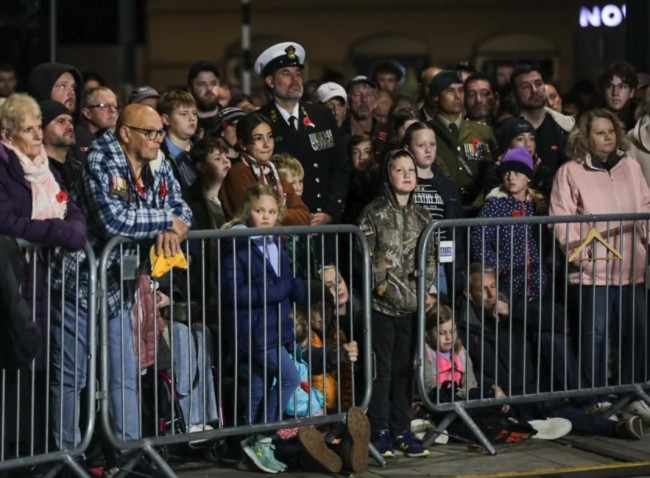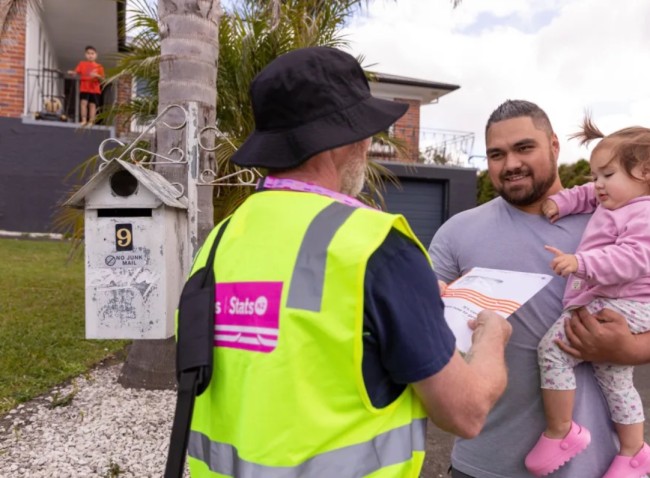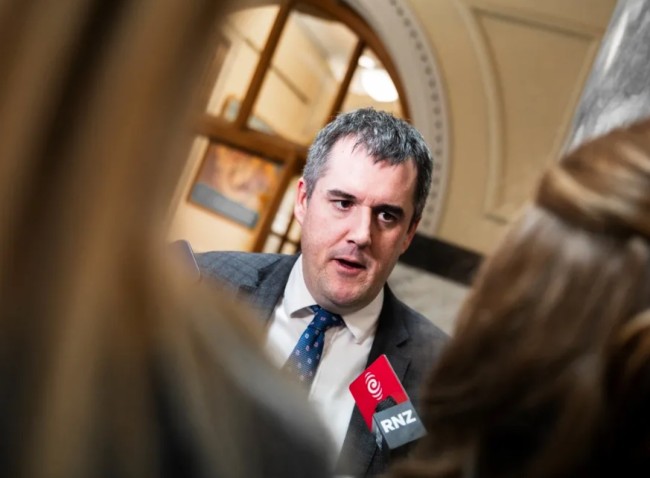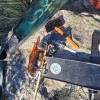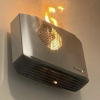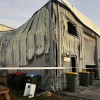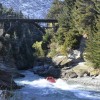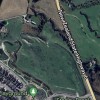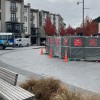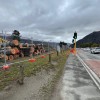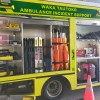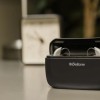Californian family's bid to recover son's body from NZ lake rejected
A Californian family have an underwater drone ready to look for the body of their son, who drowned in a South Island lake when a skydiving jump went wrong.
US man Tyler Nii drowned in Lake Wakatipu in January 2018.
An expat New Zealander who is a sergeant with a US sheriff's department and an experienced searcher for submerged bodies in the US Great Lakes have teamed up to do the work.
But the New Zealand police won't let them.
Police say a drone the Americans have for the search is not good enough - even though its operator says the sonar works at 500 metres deep and the search site is about 350m deep.
The Nii family of San Jose are infuriated.
Tyler Nii, 27, a tennis coach, did not survive after a double parachute failure over Lake Wakatipu in January 2018.
His lifevest also failed to inflate. The tandem-jump instructor survived.
Kevin Nii, Tyler's older brother, said: "We just want to try, we just want to get the chance to look for him.
"Just to have the hope, you know - like, it felt very hopeless for a long time, especially dealing with the [New Zealand] government.
"And then to have somebody say ,'Like, hey, we really want to help you guys out'."
The Nii family still do not have a death certificate. It is unclear why.
The Nii family - from left, Kevin, Nancy, Robert, and Tyler Nii. Photo: Supplied
They did have a Civil Aviation Authority (CAA) report, but they considered it so inept and incomplete they thought it did not deserve to be called an investigation.
It had been a long fight just to be told anything by authorities, Kevin Nii said.
Attention grabbed in Colorado
In early 2018, the Nii family's story caught the attention of Mark Watson, a sergeant in the Summit County Sheriff's Office in Colorado.
Watson, from Hawke's Bay, went from skiing in the state to policing it for the last two decades, overseeing a special operations division of 100 volunteer rescuers and a summer boat team on its largest 100m-deep reservoir.
But he knew Lake Wakatipu was much deeper, and "not even our equipment could reach these depths to make such a recovery", Watson told RNZ.
Stuck, he talked to drone operator Tom Crossmon from Crossmon Consultants of Minnesota about it and to the Nii family's friend, Brian Kreger, a San Jose lawyer.
Kreger said: "He [Watson] had seen the story about Tyler and had really been bothered by it.
"Because they had equipment that they had been using for some time in Colorado for deepwater recoveries of bodies, when their experience was that because of the nature of the water that the body was still recoverable."
Crossmon looked at the case and decided it was worth volunteering to try.
"It's very achievable," he said.
He estimated he had a 100 percent success rate finding 100 bodies in the last 15 years using sonar-equipped drones.
"If I don't think I can be successful, I won't waste my time and their money travelling there to attempt it."
Crossmon already had an eye on a deeper-diving drone that was being put through its paces.
He bought one just last week.
"I'm really excited because it's really designed to do exactly the type of search regards to Tyler - deep, cold water."
Its multi-beam sonar worked at many times deeper than Lake Wakatipu, and its mapping ability allowed a thorough search, he said.
Drowned bodies usually were found within a radius the equalled the depth they were at; in the Nii case, this meant an area that could be comprehensively searched in between two days and a week, Crossmon said.
"I would not take it on if I didn't think it was [a legitimate hope].
"If I thought that it was a very small chance, I would explain that to them and leave it up to them."
Watson said there were no guarantees, but the new technology offered a chance.
"We also believe Tyler will be in a preserved condition due to this lake being a fresh water glacial lake which is deep and cold."
The Nii family were encouraged.
"You know, we looked into them and it sounded really great," Kevin Nii said.
"We have the coordinates ... we marked it on our own GPS.
"We know the person whose property is closest - he tried to save Tyler's life when it happened. He's been incredibly helpful."
NIWA told Sergeant Watson that it recently mapped the lake bed at a 3-metre resolution for the first time, and at the search site it was about 375m deep, with some steep slopes.
Crossmon said slopes were a complication he could deal with.
"We do not have any evidence that landslides have occurred in this region in the last few years," NIWA said, lessening a concern the body might be buried.
The search was primed to take place early next year, Covid-19 border rules permitting.
Police reject search
The Americans contacted the New Zealand Police with the proposal, emailing them several times since the start of the year.
Eventually in April, they heard back.
It was not good news.
The police suggested that they themselves might search, if they could find the right drone, but did not have one yet.
They echoed this in a statement yesterday to RNZ:
"Our staff assessed the bid carefully, including calling on the expertise of our Police National Dive Squad.
"Unfortunately, the [drone] did not have the technical specifications required for the task, for reasons including the depth of Lake Wakatipu.
"Options for the recovery of Mr Nii's body, pending any further technological advancements, will be assessed."
Crossmon has not heard from the police here.
Kevin Nii said it was "confusing" and "infuriating" response, coming on top of what the family considered was an inept and incomplete CAA investigation.
"I don't understand why unless they're still covering something up," he said.
"Like, I just don't understand what the reasoning is, for why they can't even respond to basic questions... It's mind boggling.
"We get that there's certain rules and bureaucracy. But I mean, we never even got a call from the government when he died. We had to reach out for everything.
"It just feels like all of this is trying to be swept under the rug. It's really difficult and painful for us to even try to go through all this and then get very little response, information or support."
RNZ asked CAA for an update on its Nii investigation, and if its report will be made public.
The agency did not address that, saying only that the Transport Accident Investigation Commission was still investigating.
That was separate from CAA's investigation, which is over.
RNZ has also sought comment from the CAA regarding the criticism of its investigation.
The Nii family made another plea to the police last week.
Kreger said: "We're hoping for positive response. We don't frankly understand why we're not getting it.
"We're not asking for much - just a little bit of cooperation and some understanding that this is all that the family has to hang on to.
"They know it's possible it won't be successful. But their feeling is they owe it to Tyler to try, so they're not going to stop easily."
In the April email, the New Zealand police referred to other barriers: The cost "to bring yourself from the US" and deploying a team for an "unknown length of time" with "no possible guarantee of success".
"Thank you for your kind offer, but unfortunately we cannot take you up on it," the police concluded.
Kevin Nii was exasperated.
"We're the ones saying we'll pay for it. We're not asking them to do it. I don't think he even referenced Covid - they just don't want to do it."
His parents were getting older and without the body "it's just like he disappeared".
"We know that he's gone but without having him it's really difficult.
"We do our best to honour honour, but everyone wishes that we had him."
The Ministry of Justice said Tyler Nii's death was with the Dunedin Coroner.
The coroner could help the family by providing the paperwork needed to register Tyler Nii's death, it said.
"The Registrar-General is making contact with Dunedin Coroner to discuss the situation with Tyler Nii, and also welcomes direct contact from the family."













